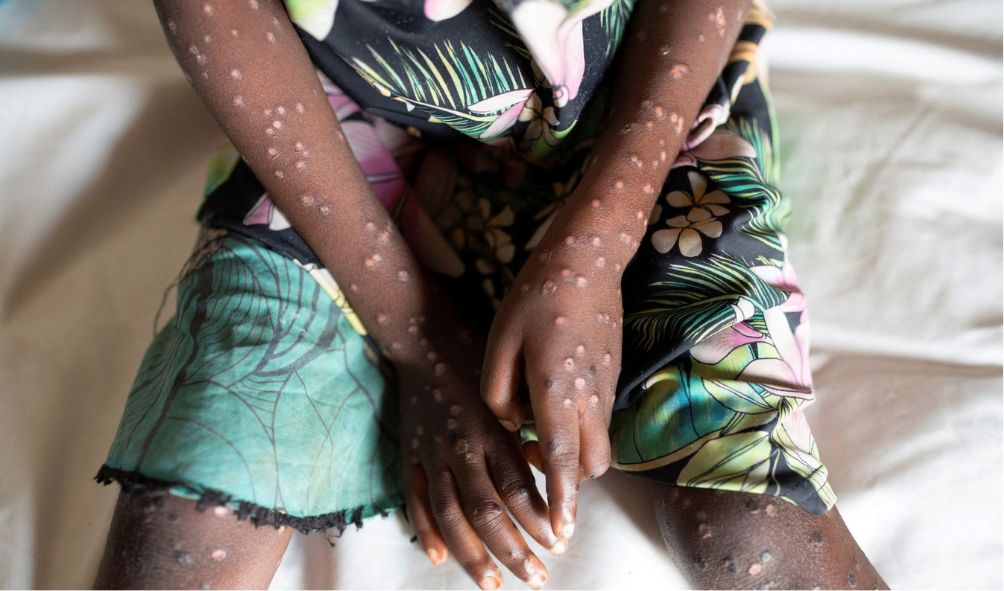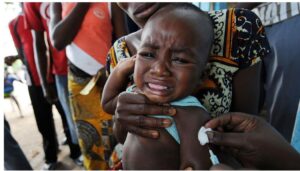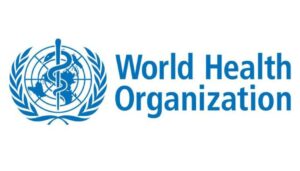WHO declares Mpox a global public health emergency

WHO) has declared a public health emergency of international concern (PHEIC), its highest level of alert, due to a new variant of the Mpox viral disease in Africa
The World Health Organization (WHO) has declared a public health emergency of international concern (PHEIC), its highest level of alert, due to a new variant of the Mpox viral disease in Africa.
The WHO on Wednesday said mpox cases have been found in 13 African countries and its new form is spreading. It is the second time in two years the organization has issued an alert for the disease.
It comes after an outbreak of the viral infection in the Democratic Republic of Congo (DRC) that has spread to neighbouring countries.
“Today, the emergency committee met and advised me that in its view, the situation constitutes a public health emergency of international concern. I have accepted that advice,” WHO Director-General Tedros Adhanom Ghebreyesus. Tedros told a news conference.
“This is something that should concern us all,” he said.
“WHO is committed in the days and weeks ahead to coordinate the global response, working closely with each of the affected countries, and leveraging our on-the-ground presence, to prevent transmission, treat those infected, and save lives,” Tedros added.
The PHEIC declaration can accelerate research, funding and international public health measures and cooperation to contain a disease. It triggers emergency responses in countries worldwide under the legally binding International Health Regulations.
Mpox can spread through close contact between individuals. While usually mild, it can be fatal in rare cases. It causes flu-like symptoms and pus-filled lesions on the body.
The DRC outbreak began with a strain known as clade I, but a new variant clade Ib appears to be spreading more easily.
The strain has so far been detected in Burundi, Kenya, Rwanda, and Uganda.
Earlier this week, Africa’s top public health body declared a mpox emergency for the continent after warning that the viral infection was spreading at an alarming rate.
Uhuru dismisses Raila claim that he asked him to reach out to Ruto
UK issues travel advisory against Kenya
Francis Atwoli warns CS Mbadi after meeting IMF representative
High Court bars plainclothes police from covering their faces
Why I sympathise with Treasury CS Mbadi; Wamuchomba
Why I didn’t speak with Raila when he came to my house; Jimi Wanjigi
More than 17,000 suspected Mpox cases and 517 deaths have been reported on the African continent so far this year, a 160 percent increase in cases compared with the same period last year, the Africa Centres for Disease Control and Prevention said.
A different form of the Mpox virus – clade IIb – spread globally in 2022, largely through sexual contact among men who have sex with men.
The WHO declared a public health emergency which lasted from July 2022 to May 2023.
The outbreak, which has now largely subsided, caused some 140 deaths out of about 90,000 cases.
Amid the most recent outbreak, the Red Cross has said it was scaling up preparedness measures across Africa, particularly in the eastern DRC.
The International Federation of the Red Cross and Red Crescent Societies voiced “profound concern” about the spread of the virus.
The organization pledged to “play a crucial role in containing the spread of the disease, even in the hard-to-reach areas where the need is the greatest”.
Also read,
Senate rejects committee in Gov Mwangaza impeachment motion
Chaos as ODM youth groups clash over leadership positions
Ruto issues way forward after revoking university fee letters
Outrage as 68-year-old deaf woman is raped and killed in Homabay
Oscar Sudi renews attacks on DP Gachagua
Former Uhuru bodyguard Ranka named North Eastern commander in new police changes
Follow us







